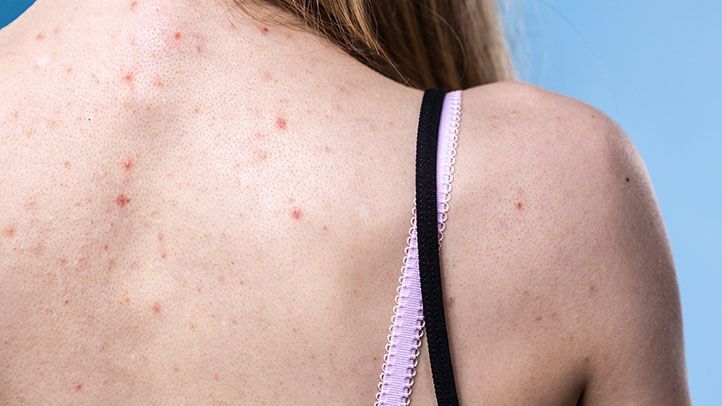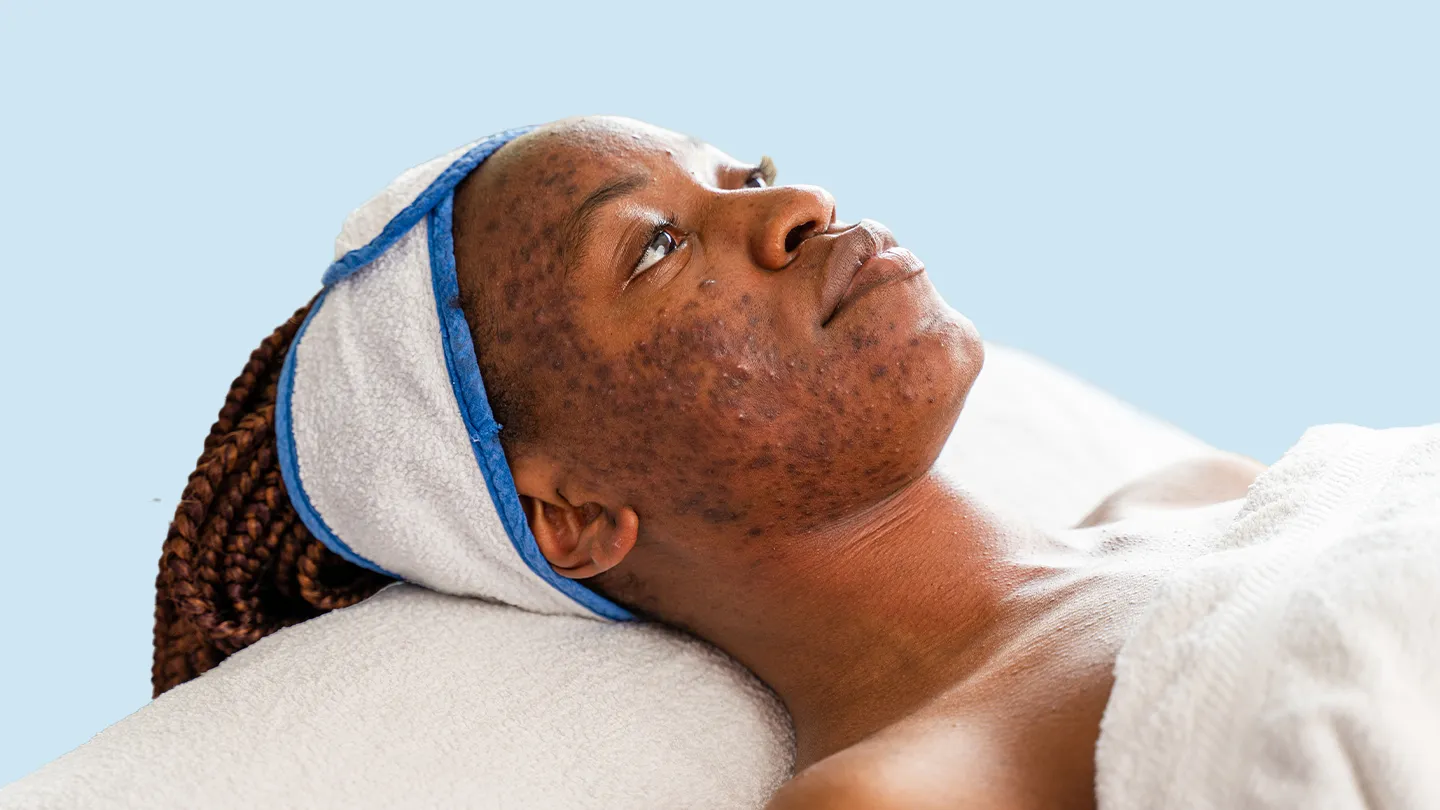Extreme Blackhead Popping: Is It Safe and Effective?
Watching extreme blackhead popping videos can be strangely satisfying, but is attempting to pop blackheads yourself a good idea? While gently removing blackheads can be beneficial for some people, extreme popping can damage skin and make acne worse. Understanding blackhead causes, risks of picking, and better ways to care for your skin can help you make the best choices.
What Are Blackheads?
Blackheads form when dead skin cells, oil (sebum), and bacteria clog a pore. The top of the clog remains open to air, which causes the oil and skin cell mixture to oxidize, turning it black. The darkened clog in the pore makes it appear like a tiny black dot on the skin.
Blackheads most often occur on the face around the nose, forehead, and chin where oil glands are most active. Hormonal changes during the teen years can trigger increased sebum production, making blackheads a common problem for adolescents.
Main Causes of Blackheads
There are several factors that can lead to clogged pores and blackhead formation:
- Excess sebum production
- Hormonal changes
- Genetics
- Bacteria overgrowth
- Skin cell buildup
- Thick, oily skincare products
- Makeup residue
- Medications
- Friction against skin
Risks of Picking and Popping Blackheads
It can be tempting to try getting rid of blackheads by squeezing and picking at them. However, this extreme blackhead popping can injure skin and worsen acne in several ways:
- Pushing bacteria deeper: Squeezing forces bacteria deeper into pores, causing more inflammation and acne.
- Damaging pores: Picking can permanently stretch pores, making them appear larger.
- Scarring: Picking can lead to facial scarring that is difficult to treat.
- Infection: Unclean fingers and tools can introduce more bacteria, causing pimples or infection.
- Skin irritation: Excessive pressure leads to redness, swelling, irritation.
- Hyperpigmentation: Picking can darken skin and cause hyperpigmentation.
In severe cases, aggressive picking and popping can even rupture the skin and require medical care. The risks generally outweigh any temporary benefits of squeezing out blackheads.
When to See a Dermatologist
Seeing a dermatologist is recommended if you have severe or persistent blackheads that do not respond to over-the-counter care. A dermatologist has specialized training, tools, and can perform professional extractions if needed. They may recommend prescription medications or treatments like:
- Prescription retinoids
- Antibiotics
- Birth control pills
- Anti-androgen medications
- Corticosteroid injections
- Light therapy
- Chemical peels
- Laser therapy
- Extractions
Dermatologist treatments should always be done under sterile conditions with proper technique to avoid complications and minimize risk of scarring.
Better Ways to Care for Blackheads
While extreme popping is risky, you can incorporate some gentle blackhead care into your regular skincare routine. Here are dermatologist-recommended ways to help minimize blackheads and keep pores clear:
Use a Gentle Cleanser
Wash your face twice daily with a mild, non-abrasive cleanser. Avoid harsh scrubs or soap that can strip away natural oils. Look for cleansers with salicylic acid to help dissolve oil and exfoliate.
Exfoliate Regularly
Use a gentle exfoliant 2-3 times per week to remove the top layer of dead skin cells. Look for exfoliants with ingredients like salicylic acid, glycolic acid, lactic acid, or jojoba beads. Avoid abrasive scrubs.
Apply Topical Retinoids
Retinoids like adapalene and tretinoin can help unblock pores and prevent clogging. Start slowly at first and apply as directed. Use a moisturizer to combat dryness.
Use Oil-Free Products
Choose oil-free skincare and cosmetic products to avoid adding more oil to skin. Oil-free labels with terms like non-comedogenic or won't clog pores are ideal.
Avoid Touching Your Face
Hands can transfer dirt and bacteria to skin, clogging pores. Try to avoid resting your face in your hands or absentmindedly touching throughout the day.
Shower After Sweating
Rinse off after activities that cause heavy sweating to wash away dirt, oils, and bacteria that build up on skin.
Remove Makeup Before Bed
Always remove makeup thoroughly before bedtime to avoid clogging pores as you sleep. Oil-free makeup removers work well.
Wear Oil-Absorbing Products
Blotting papers, oil-absorbing primer, or powder can help control oil and shine throughout the day without stripping skin.
Watch What Touches Your Face
Be mindful of objects that contact the face like phones, helmets, or hair. Clean regularly to remove oil and germs.
Avoid Picking and Popping
As tempting as it is, avoid squeezing and picking at blackheads to prevent worsening breakouts or scarring.
See a Dermatologist If Needed
Make an appointment with a dermatologist if over-the-counter tips arent improving blackheads after a few months. Prescription treatments may help.
Protect Skin from the Sun
UV exposure can worsen breakouts and damage skin. Use an oil-free sunscreen of SPF 30 or higher daily.
When to Extract Blackheads
Most dermatologists advise against DIY blackhead extractions at home. Improper technique risks spreading bacteria and leading to more acne. However, gentle extractions may be considered in some circumstances if done correctly:
- Use a sterile tool like a comedone extractor.
- Cleanse skin and hands thoroughly first.
- Steam skin to open pores, but avoid scalding.
- Gently press on either side of blackhead, not the center.
- Never squeeze, scratch, or pick forcefully.
- Only extract blackheads ready to eject easily.
- Stop immediately if you see deep redness or blood.
- Apply antibacterial product after to prevent infection.
- Avoid excessive extractions to prevent skin damage.
See a dermatologist for professional extractions if blackheads are widespread or not improving with gentle care at home. Extractions should not cause pain, bleeding, or exacerbate acne.
When to See a Doctor
Consult a dermatologist if you experience:
- Severe or worsening breakouts
- Deep cysts or nodules
- Scarring from picking
- Painful bumps
- Blackheads unresponsive to over-the-counter care
- Signs of skin infection
A dermatologist can determine if prescription medications or treatments may help treat stubborn blackheads and prevent further problems. Early treatment can help prevent permanent acne scarring.
The Bottom Line
Watching extreme blackhead popping may be satisfying, but attempting to replicate it at home can seriously damage skin. Work with a dermatologist to find the right acne treatment plan for your needs, and be cautious with at-home extractions. With a gentle daily skincare routine, most blackheads can be managed without picking or harsh popping.
FAQs
Why are blackheads bad to pop?
Popping can push bacteria deeper, permanently stretch pores, cause scarring and irritation, and worsen acne breakouts.
When is it okay to extract a blackhead?
Gentle extraction may be considered if using a sterile tool, cleaning the skin first, applying light pressure, and stopping if there is pain or bleeding.
What are better ways to treat blackheads?
Gentle daily cleansing, exfoliating 2-3 times a week, oil-free products, retinoids, avoiding touching the face, and seeing a dermatologist if needed.
When should I see a doctor for blackheads?
See a dermatologist for severe, widespread, or persistent blackheads not improving with over-the-counter care. A doctor can provide prescription treatments.
Disclaimer: This article is for informational purposes only and does not constitute medical advice. Always consult with a healthcare professional before starting any new treatment regimen.
Related Coverage
Fungal acne is a skin condition caused by yeast overgrowth on the face. Learn what causes it, symptoms to spot, and effective anti-fungal treatment methods....
Bacne or back acne often responds well to over-the-counter washes, but severe cases may need prescription medications, professional extractions, lasers, peels, and microneedling to clear skin and minimize scarring....
Wondering which body wash will help tackle your body acne and acne on your back, chest and shoulders? We review the best acne body washes plus extra treatments....
Extreme blackhead popping can worsen acne. Learn the causes, risks of picking, when to extract safely, and better ways to care for blackheads without harsh popping....
Big painful zits under the skin can be annoying and unsightly. Learn what causes them, when to pop them, and proven home remedies and professional treatments....
Microdermabrasion for acne can smooth active breakouts, reduce shallow scars, and boost collagen, but it's best for mild cases....
Blackheads on the inner thighs can be caused by clogged pores, friction, and sweat. Treat mild cases with exfoliation and acne creams. See a dermatologist for severe acne....
Follow these makeup tips for fungal acne-prone skin - featuring the best non-comedogenic foundation, concealer, powder and more to cover up malassezia without making it worse....
Aklief interactions with prescription drugs, supplements, alcohol, and skincare can cause irritation—learn how to avoid them....
Tazorac for acne is a prescription retinoid that clears breakouts and helps prevent ones. Get usage tips and know side effects....






